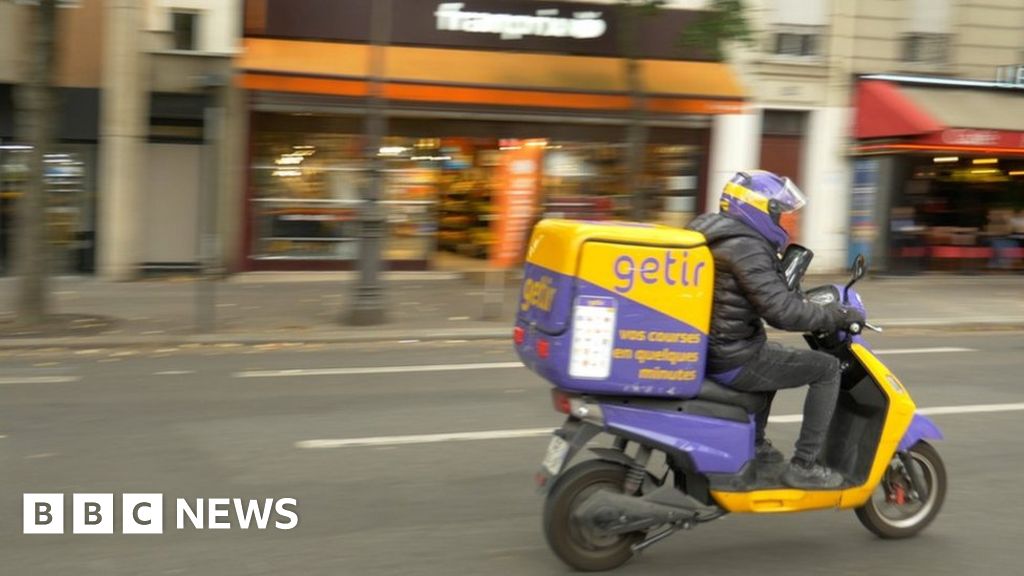Fast Grocery Firms Doomed By French Dark Store Ban

City-centre depots proliferated through France after Covid popularised online food shopping
Pulverised by steep financial losses and hostile new regulations, operators of France's once-thriving "dark stores" are pulling down the shutters for good.
On Wednesday, top brands Getir and Gorillas ceased to exist in France.
The city-centre depositories, promising instant deliveries of popular grocery items, blossomed during Covid lockdown.
But after complaints from locals and fears of unfair competition, the dark stores can no longer be classified as shops, but only as warehouses.
The new rules came into force on 1 July, but already the two main companies in "ultra-quick commerce" - Getir, a Turkish firm, and Germany's Flink - had announced they were leaving France.
In a statement, Getir, which also owns Gorillas and Frichti, said the decision was "inevitable because of the difficult economic climate, a hostile regulatory environment and an absence of potential buyers".
A commercial court in Paris has now officially placed Getir and Gorillas in liquidation, with the loss of some 1,300 jobs. It gave Frichti three more months to find a possible buyer. The court will rule on Flink's fate later in the summer.
At their peak, 12 different operators ran some 80 locations in Paris alone. Overall, the sector employed about 2,200 people, mostly on permanent contracts.
City officials in Paris were delighted by the pull-out. "The dark stores are over," said deputy mayor Emmanuel Grégoire, evoking their "predatory capitalistic behaviour".
Typically, dark stores presented a blank front to the street, with just the name of the company on a frosted window. Inside were shelves of commonly bought goods, stacked into bags and waiting to be handed to couriers.
But locals complained of constant noise from squads of deliverers, while city planners said the model threatened to drain life from the public space and create a society of home-bound consumers.
Food deliveries in France will remain possible via Internet operators such as Uber Eats and Deliveroo that work in co-operation with supermarkets.
Campaigners against "quick commerce" say that ironically, staff in dark stores - being on full-time contracts - were better protected than the freelance couriers employed by online platforms.
From Chip War To Cloud War: The Next Frontier In Global Tech Competition
The global chip war, characterized by intense competition among nations and corporations for supremacy in semiconductor ... Read more
The High Stakes Of Tech Regulation: Security Risks And Market Dynamics
The influence of tech giants in the global economy continues to grow, raising crucial questions about how to balance sec... Read more
The Tyranny Of Instagram Interiors: Why It's Time To Break Free From Algorithm-Driven Aesthetics
Instagram has become a dominant force in shaping interior design trends, offering a seemingly endless stream of inspirat... Read more
The Data Crunch In AI: Strategies For Sustainability
Exploring solutions to the imminent exhaustion of internet data for AI training.As the artificial intelligence (AI) indu... Read more
Google Abandons Four-Year Effort To Remove Cookies From Chrome Browser
After four years of dedicated effort, Google has decided to abandon its plan to remove third-party cookies from its Chro... Read more
LinkedIn Embraces AI And Gamification To Drive User Engagement And Revenue
In an effort to tackle slowing revenue growth and enhance user engagement, LinkedIn is turning to artificial intelligenc... Read more

